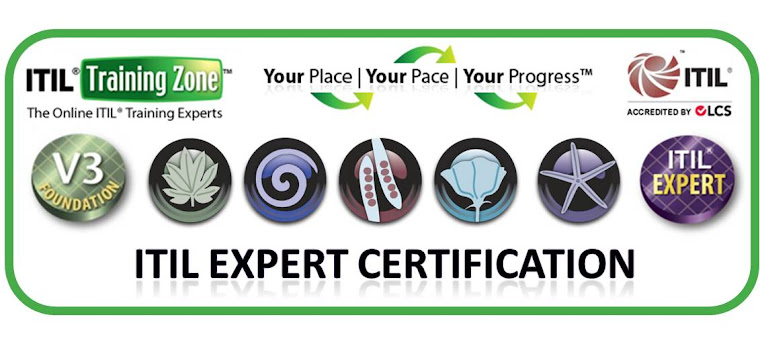With the advent of the latest ITIL qualfiications scheme, employers are now standardizing on the latest ITIL Version 3 certifications.
This operates on two levels: ITIL V3 Foundation and ITIL V3 Expert, with the ITIL Masters qualification to follow in 2011.
The Foundation level provides general profficiency in the key concepts and processes involved iwth the five stages of the Service Lifecycle. Each of the five stages (or phases) are: Service Strategy, Service Design, Service Transition, Service Operation and Continual Service Improvement (CSI).
The ITIL Expert status is achieved via the ITIL Intermediate Courses plus the final captstone course called 'Managing Across the Lifecycle.
ITIL Intermediate Courses are grouped into two separate streams: ITIL Intermediate Lifecycle Courses and ITIL Intermediate Capability Courses.
Both streams offer training courses and complex multiple choice exams - leading to certification at that level.
To qualify for ITIL Expert status, one must gain 22 ITIL Credits - mainly from either the Lifecycle Stream and/or the Capability Stream. Careful choices will need to be made to avoid duplication and overlaps with course syllabii.
ITIL Expert certification status is rapidly becoming the industry 'norm' required by employers seeking experienced ITIL/ITSM Anlaysts, Managers, Project Managers, Consultants and leaders in their field.
The old ITIL V2 "Manager's" certification can be bridged to Version 3 Expert by taking one course - namely the ITIL V2-V3 Manager's Bridge. This bridging course has a limited lifespan and availability.
ITIL Experts can usually command 15-20% higher salaries in their respective fields - when compared with ITIL V2 Managers - because they can demonstrate the latest concepts, good practices and processes of ITIL Version 3. However, there are also the: "experience in the field" and "overall qualities and capabilities of the person" aspects for the prospective employer to consider.
ITIL Expert Training
Learn How To Gain
ITIL Expert Certification Online.

